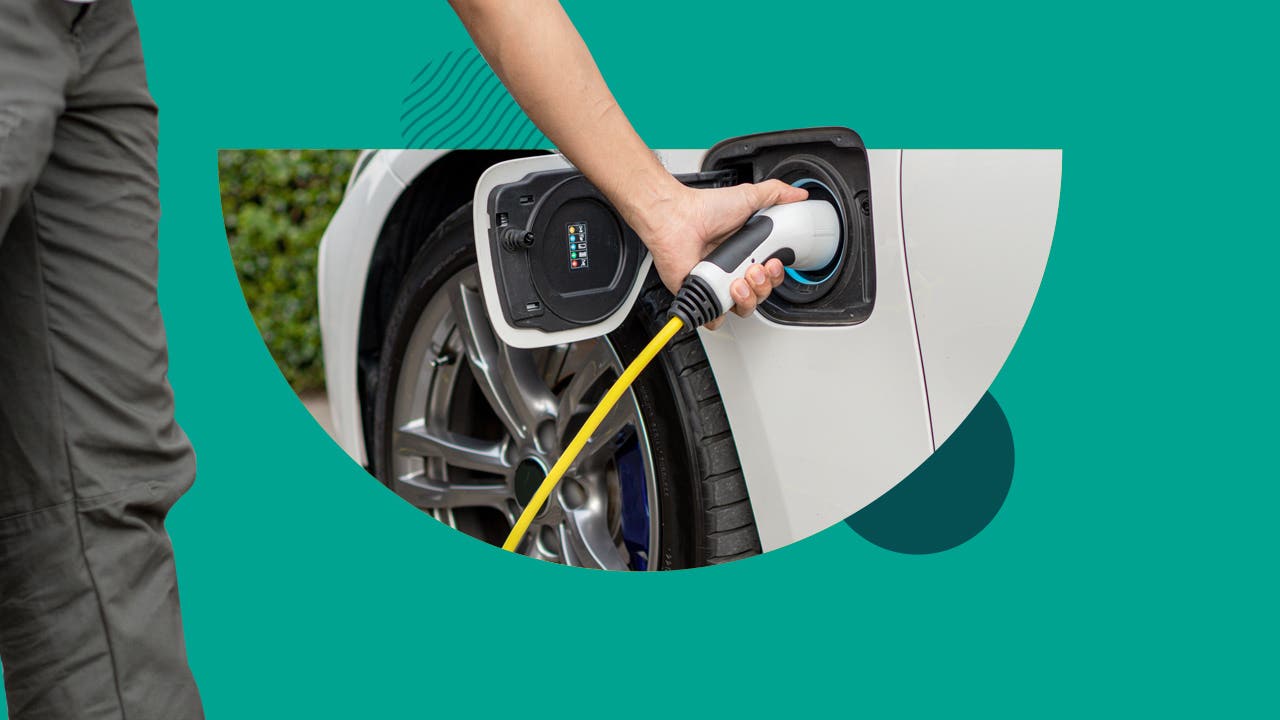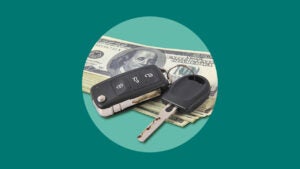Should I buy an electric car? How to decide in 2025

Key takeaways
- EV sales have steadily increased in recent years, with more options and financing opportunities becoming available.
- While EVs tend to have a higher upfront cost, they can offer a more enjoyable driving experience and potential cost savings through incentives and lower maintenance costs.
- Before purchasing an electric vehicle, it is important to consider factors such as the vehicle's range, access to charging stations, and whether leasing may be a better option.
With steep costs to fill up, plus the ever-present worries over climate issues, many drivers are itching for another solution. Electric vehicle (EV) sales have jumped in the past few years, but the expensive upfront cost of an electric vehicle might not be right for every driver.
Consider the benefits of driving electric over the total cost to determine if the initial price tag outweighs the potential long-term savings.
Is it a good time to buy an electric car?
EVs made up 8.55 percent of new vehicle purchases in the fourth quarter of 2023, according to Experian. Many buyers — 44.8 percent — chose to finance with an auto loan. Just over 30 percent chose leasing.
Consistently high gas prices may have helped to propel EV sales. A gallon averaged $3.07 on January 9, 2025, according to AAA.
This growing interest in electric vehicles has led to advancements in available financing, including green auto loans and tax credits.
The choice to buy electric should be approached with the same care as determining the make and model of your next car. For some, the convenience of never gassing up paired with minimal maintenance makes the high price tag worthwhile.
Upsides of driving an EV
Purchasing an electric vehicle has advantages beyond a positive environmental impact.
Enjoyable driving experience
EVs often have luxury features to match their higher price point.
“The driving experience of electric cars is very rewarding,” says Brian Moody, executive editor at Autotrader. “Acceleration is more brisk and electric cars have cool features like the ability to heat up or cool down your car’s interior before you hit the road.”
Available incentives
Driving electric also carries federal and potential state benefits you would not traditionally have access to. One of these is the federal EV tax credit, an incentive worth $7,500 for qualifying new plug-in and fuel-cell electric vehicles. Your home state may also offer tax credits.
2023 introduced a federal tax credit for used EVs. To qualify, the vehicle cannot be priced above $25,000. With this tax credit, you can claim up to 30 percent of the sale price, capped at $4,000.
Both federal tax credits come with income limits and vehicle requirements, so make sure you and your potential future EV qualify before diving in.
Increasing options
The electric car industry has seen great innovation over the past two years and will continue to expand. While upfront costs have historically been high, they’re dropping as legacy brands dive into the electric car market.
In November 2024, new and used EV sales totaled just under 142,000 units, according to a report from Cox Automotive. This is a 13.6 percent increase from the same time in 2023. And based on the most recent data from Experian’s Automotive Finance Market report, EVs make up 10 percent of new financing and 17.3 percent of all new leases.
“It used to be true that there were only a handful of very small or very expensive electric cars.” Moody shares. “While EVs are more expensive as a whole, some individual models are more reasonably priced.”
More-affordable options include:
- Chevrolet Bolt.
- Kia EV6.
- Nissan Leaf.
Downsides of driving an EV
Before climbing into the driver’s seat, consider possible drawbacks.
Potentially expensive repairs
Mitchell, which tracks average repair costs and accident details across the country, found that BEVs (battery electric vehicles) had an average repair cost of $5,560 in the third quarter of 2024. For a traditional gas-powered cars, repair costs averaged $4,741. This nearly $1,000 difference can be a major downside if you don’t have the emergency funds to cover the expense.
Fewer servicing options
EV servicing infrastructure is expanding. But there is still a long road ahead to reach parity with the ICE (internal combustion engine) industry. A Cox Automotive service study from 2023 found that 58 percent of dealers need more infrastructure for EV servicing. More than that, over half need more EV-trained staff. While these numbers may have changed over 2024, it is unlikely that EV servicing and staff training has increased significantly year-over-year.
Depreciation
Electric cars can depreciate faster than ICE vehicles because of the speed of tech advancements. However, the current demand for EVs is helping to stabilize prices. In addition, more electric vehicles were bought or leased across the market over the course of 2023 and 2024, which may help combat steep depreciation.
Can EVs carry a lower lifetime cost?
Climate worries aren’t the only reason people are turning to EVs. There’s also the potential to save money. Even if the average cost of EV repairs is higher, driving electric can be cheaper over time. A 2023 report from Consumer Reports found that EV owners may save $6,000 to $12,000 over the life of the vehicle.
Consider a plug-in
A plug-in hybrid model can be more fuel-efficient than ICE models but kinder on your wallet than an EV. As Moody explains, these tend to carry a lower price tag and “function as an electric car on a day-to-day basis, consuming gas only for long trips.”
This makes them an option for drivers interested in driving electric but not ready to commit fully.
Questions to ask before buying an electric vehicle
Owning and operating an electric car comes with an additional set of needs that you may not have dealt with in the past. Consider these questions.
1. What is the vehicle range?
Check the distance your vehicle can get you — for both your typical commute and your travel habits. Energy.gov reports the average range for EVs is between 150 and 400 miles. With ranges this high, drivers will likely deal with less anxiety between charges, but check your needs by factoring in your typical commute and expected leisure activities.
2. Should I lease before I buy an electric car?
“Leasing an electric car can be a good way to test the waters of EV ownership,” Moody says. Leasing an EV is typically less expensive on a month-to-month basis and usually includes a warranty. Plus, your lessor may apply the savings they get from the federal EV tax credit to your lease, further cutting your cost.
If you are on the fence about driving electric, consider leasing one to see if you like the feel and experience.
3. Do I have access to vehicle chargers in my area?
Many drivers do not have the luxury of installing a Level 2 charger. Luckily, some EVs now have the option to charge from any electrical outlet, although it may take all night or longer to get a full charge.
That said, you might need a speedier charge at times. Many EVs take about 45 minutes to reach 80 percent battery capacity at a fast-charging station. To find out where you might be able to get a faster charge, check out PlugShare, which maps out charging stations nearby. Double-check that any charging stations you plan to frequent are compatible with the car you’re considering.
How to finance an electric vehicle
Financing an electric vehicle is similar to financing a traditional gas-powered car. To get the best auto loan rate, compare rates and available terms.
The growing market for electric vehicles has also led to advancements in financing. EV-specific lenders like Tenet are gaining popularity. They provide drivers with a tailored experience through green auto loans.
Other companies work like loan marketplaces where drivers can compare EV loans. EV Life is one such platform.
Bottom line
So, is an electric car worth it? Like any other luxury vehicle, EVs can carry higher upfront costs, and drivers need a strong credit profile to benefit from low interest rates. But as the industry grows and more mid-tier options pop up, more drivers can reasonably consider an electric option.
If you are considering electric, Moody recommends aiming for the sweet spot by buying lightly used — in the three- to five-year range. You’ll benefit from a lower price and remaining warranty coverage.






